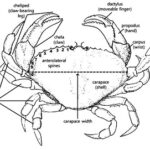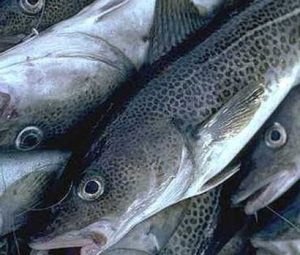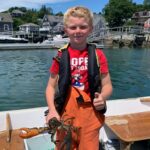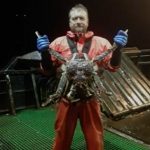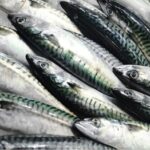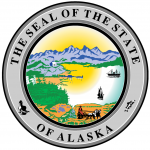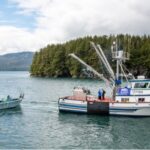Monthly Archives: August 2013
California – Watch state of salmon forum on webcast; webcast live by the California Channel, www.calchannel.com, video will be archived

SACRAMENTO – Assemblymember Wesley Chesbro, chair of Legislature’s , has finalized the agenda for this week’s special hearing on the state of California salmon. The hearing is scheduled for 1:30 to 4:30 p.m., Wednesday, Aug. 21, in room 437 at the state Capitol in Sacramento. more@mendocinobeacon 21:52
Wild salmon fishery discard video sparks probe

The federal Department of Fisheries and Oceans says it has launched a formal investigation after a video showing allegedly harmful salmon release practices was posted online last week. more@cbcnews 20:15
Jones Boys charged with stealing crab pots in Currituck Co, NC

CURRITUCK CO.–Two brothers face 36 charges after stealing more than 300 crab pots in the Currituck Sound and nearby waters, authorities said Monday. Larry Wayne Jones, 45, and his brother Thomas Eldon Jones, 52, of Barco were arrested Friday. more@wvec 19:59
Government Recklessly Reopened Fisheries in the Gulf – Based Decision on Skewed Data and Questionable Testing Methodology
 Everyone knew something was very wrong back in 2010 when the “US Department of Commerce – National Oceanic and Atmospheric Administration (NOAA) began closing fisheries on May 2, 2010. It began reopening them, with various spatial and other limits, on June 23. The well was capped on July 15.” more@oilandgasleaks 17:26
Everyone knew something was very wrong back in 2010 when the “US Department of Commerce – National Oceanic and Atmospheric Administration (NOAA) began closing fisheries on May 2, 2010. It began reopening them, with various spatial and other limits, on June 23. The well was capped on July 15.” more@oilandgasleaks 17:26
NOAA Inaction in the Gulf of Mexico http://www.fishnet-usa.com/NOAA_Inaction.htm
Pink catches set records; AK 2013 salmon season on track for all time high! This is Fish Radio. I’m Laine Welch
 Alaska’s pink salmon catch by yesterday neared 170 million – blowing past the 161 million record set in 2005 – and millions more humpies are still swarming in. listen@alaskafishradio 17:17
Alaska’s pink salmon catch by yesterday neared 170 million – blowing past the 161 million record set in 2005 – and millions more humpies are still swarming in. listen@alaskafishradio 17:17
One Tough Job…Salmon Set Netters Share Their Summer Challenges – This is Fish Radio. I’m Stephanie Mangini.
 A gill-netter once said… “You can have a really good year and you don’t get rich. Or you can have a really bad year and you don’t go poor.” listen@alaskafishradio 17:13
A gill-netter once said… “You can have a really good year and you don’t get rich. Or you can have a really bad year and you don’t go poor.” listen@alaskafishradio 17:13
Opinion: Feds must do more to protect BC salmon
Skeena River sockeye salmon are returning in desperately low numbers this summer, causing concern among conservationists for the future of one of British Columbia’s largest and most diverse salmon runs. The run collapse triggered closures of commercial and recreational fisheries in B.C., and restricted First Nations’ food fisheries. Meanwhile, commercial fisheries in Alaska intercepted large numbers of Skeena sockeye just over the border, less than 100 kilometres from the mouth of the Skeena River. more@terracestandard 15:52
F/V Jessica Heather, freed from sand at Atlantic City
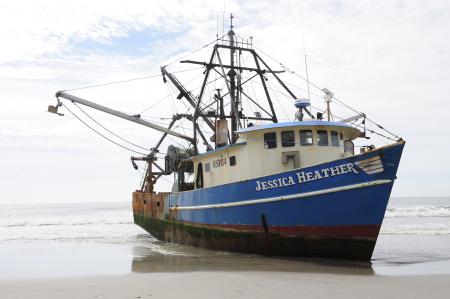 F/V Jessica Heather, homeported in Atlantic City, aground in Atlantic City Coast Guard Marine Environmental Response Personnel are on scene and are working with state and local responders to monitor the situation in order to mitigate any pollution issues that may occur. A local tow company is en-route to re-float the vessel during high tide at approximately 7 p.m. and if successful, will return the fishing vessel safely to its homeport. more@uscgnews 15:11
F/V Jessica Heather, homeported in Atlantic City, aground in Atlantic City Coast Guard Marine Environmental Response Personnel are on scene and are working with state and local responders to monitor the situation in order to mitigate any pollution issues that may occur. A local tow company is en-route to re-float the vessel during high tide at approximately 7 p.m. and if successful, will return the fishing vessel safely to its homeport. more@uscgnews 15:11
F/V Jessica Heather, freed from sand at Atlantic City more@uscgnews video
“Hey, boss … I don’t know if they’re here. It don’t look real promising,” – Three years after BP, Gulf fishermen struggle to survive
 Before, they would have pulled in 20 or so in that time. But that was before. Like many along the coast, fishermen and their families refer to life in a series of befores and afters — before Katrina and after Katrina, before and after Gustav, and before or after the four or five other major storms that have struck in the last eight years. And then came BP. more@facingsouth 14:51
Before, they would have pulled in 20 or so in that time. But that was before. Like many along the coast, fishermen and their families refer to life in a series of befores and afters — before Katrina and after Katrina, before and after Gustav, and before or after the four or five other major storms that have struck in the last eight years. And then came BP. more@facingsouth 14:51
As alewife populations recover, a new economy emerges

Friendship lobsterman Jim Wotton believes the resurgent river herring could feed lobster traps en masse, generating big profits. Wotton, 44, of Friendship, is one of Maine’s authentic lobstermen, but he’s also taken on a second role in recent years that offers a look into the future. As a member of the Alewife Harvesters of Maine, Wotton has staked a claim in an up-and-coming industry that may soon be hugely important to Maine’s 6,000 lobstermen. more@morningsentinal 14:33
Oregon – Brookings, Newport lead Dungeness crab totals – ranks sixth in the last 15 years.

Preliminary numbers show landings in excess of 18.1 million pounds for the season, which officially ended Wednesday. The record, set back in the 2004-05 season, stands at 33.7 million pounds. In the most recent 10-year period, Oregon landings have averaged 20.3 million pounds annually. more@dailyastorian 14:19
Lobster retail pricing has lobstermen at the mercy of a Commodity Market

For more than a decade, we’ve been living through a commodity price boom. From oil to wheat and beef, the general rule has been that if you farmed it, caught it, or took it out of the ground you were probably going to make money selling it. But there has been a strange exception: lobster. In 2005, Maine lobster was selling for almost six dollars a pound wholesale. By 2009, it cost just half that, and, in the past couple of summers, huge lobster harvests, believed by some to be a result of global warming, have glutted the market, sending prices tumbling further. This month, lobster off the boat is selling for as low as $2.20 a pound. more@the newyorker 14:04
CDQs bring millions in fishing profits — and jobs — to poor western Alaska villages

Congress tried to honor that connection when it created the Community Development Quota, or CDQ, program, in 1992. Before CDQs, commercial fishing was dominated by outside interests, most notably from foreign countries and other states, said Clem Tillion, who helped create the program as then-Gov. Wally Hickel’s fisheries guru. The program gave six groups, meant to represent a total of 65 communities along a 50-mile stretch of the Bering Sea coast, an allocation in certain Bering Sea fisheries managed by the federal government. The groups are nonprofit corporations that represent a total 27,000 Alaska residents. Each has a set geographic range in Western Alaska, from Atka to Diomede. more@alaskadispatch 13:51
Water wars: What does Florida have that Georgia needs?
U.S. District Judge Paul Magnuson was writing from the Middle District of Florida. “Too often, state, local, and even national government actors do not consider the long-term consequences of their decisions,” he wrote. “Local governments allow unchecked growth because it increases tax revenue, but these same governments do not sufficiently plan for the resources such unchecked growth will require. “Nor do individual citizens consider frequently enough their consumption of our scarce resources absent a crisis situation …” he wrote. “The problems faced in the (Apalachicola-Chattahoochee-Flint) basin will continue to be repeated throughout this country, as the population grows and more undeveloped land is developed.”more@ledgerinquirer 09:58
Hancock Lobster Co. owner’s seafood empire gaining national notoriety

Owner Cal Hancock arrives with a hearty handshake. “Did you hear what’s going on?” she asks a visitor. “We just got an account with Delta for our lobster mac and cheese,” beams Hancock, whose rich and creamy recipe made with Maine lobster and mascarpone cheese will be served in the airline’s first class cabins this fall. “It’s very exciting.” more@bdn 8:12
Port of Digby bustling with boats in wake of renovations

DIGBY — Digby may be one of the most expensive ports in Nova Scotia when it comes to tying up a fishing boat, but the town’s public wharf is nonetheless expanding in a big way. To date this year, some 83 boats use the wharf as a home port. more@chronicleherald 06:45:46
Oyster rising: Farmers work to propel aquaculture in NC
WILMINGTON — The bays and sounds of North Carolina once yielded hundreds of thousands of bushels of oysters a year, before pollution, overfishing , disease and other factors caused their populations to decline. Now a small group of scientists and growers is laying the groundwork to revive the industry by cultivating oysters in cages and bags. more@newsobserver06:23:59
California’s squid industry is booming – Tons and tons of Market Squid are brought into the harbor every morning.
The abundance is because it’s spawning season. At this time of the year, Market Squid travel in massive schools to spawn and die. The squid industry was volatile for a few years because the state did not want them to be over-fished, so regulations were put in place. Today, there is a limit on how many one boat can catch, and under new regulations, they cannot be fished on the weekends. more@ksby02:11:02
It’s a libertarian’s wet dream: With President Obama and Congress on vacation, we’re safe from government. Now, go read the Federal Register.
 Washington’s secret rulebook It’s the daily compendium of proposed rules, regulations and decisions by government agencies. It never heads to Martha’s Vineyard and isn’t read by 99% of Washington reporters. But it’s testament to the unceasing impact of government and proof of where the real power resides: in the bureaucracy. more@nydailynews23:09:49
Washington’s secret rulebook It’s the daily compendium of proposed rules, regulations and decisions by government agencies. It never heads to Martha’s Vineyard and isn’t read by 99% of Washington reporters. But it’s testament to the unceasing impact of government and proof of where the real power resides: in the bureaucracy. more@nydailynews23:09:49
2013 Gloucester Fishermens Memorial Service, Photos from Anthony Marks
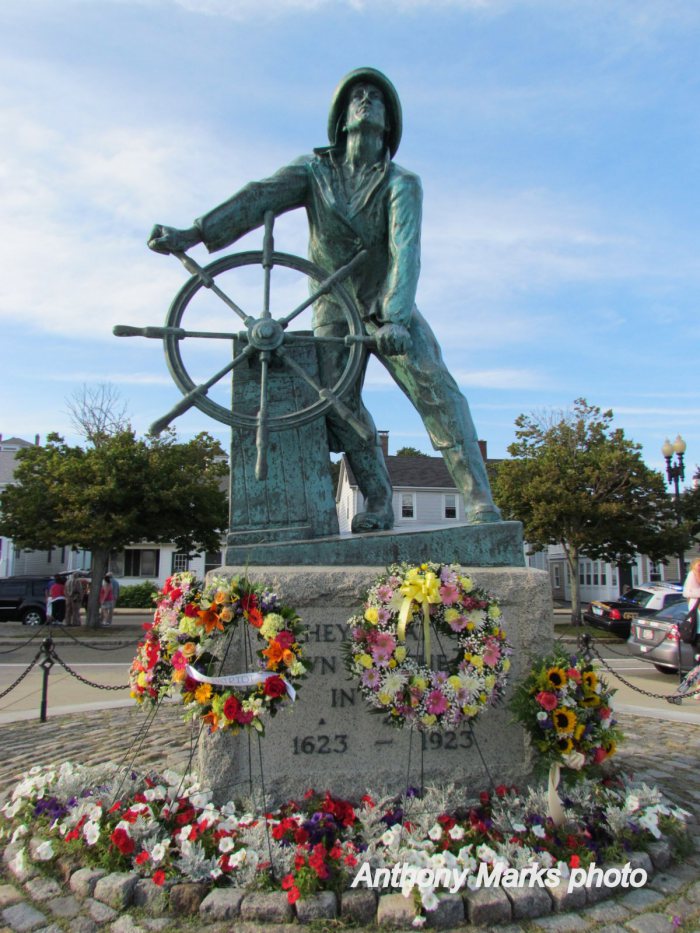 Gloucester Fisherman’s Memorial (also known as: “Man at the Wheel” statue or “Fishermen’s Memorial Cenotaph”) is an historic memorial cenotaph sculpture on South Stacy Boulevard, near entrance of Stacy Esplanade in Gloucester, Massachusetts, built in 1925. link
Gloucester Fisherman’s Memorial (also known as: “Man at the Wheel” statue or “Fishermen’s Memorial Cenotaph”) is an historic memorial cenotaph sculpture on South Stacy Boulevard, near entrance of Stacy Esplanade in Gloucester, Massachusetts, built in 1925. link
Noise from seismic air guns could be skirmish before war over East Coast offshore drilling – pile-driving for windmill construction will be louder than air guns
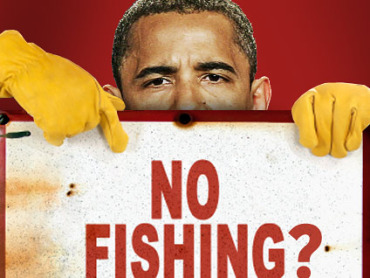 Oil and geophysical companies say this is an ill-disguised attempt to prevent all drilling in the huge area President Obama opened to exploration in 2010, and other members of Congress have demanded that exploration proceed.If the goal is to shut down oil and gas exploration in favor of constructing wind turbines, Gill said, pile-driving for windmill construction will be louder than air guns. more@washingtonpost21:17:11
Oil and geophysical companies say this is an ill-disguised attempt to prevent all drilling in the huge area President Obama opened to exploration in 2010, and other members of Congress have demanded that exploration proceed.If the goal is to shut down oil and gas exploration in favor of constructing wind turbines, Gill said, pile-driving for windmill construction will be louder than air guns. more@washingtonpost21:17:11
The Workers’ Compensation Board of Nova Scotia campaign aims to keep fishermen afloat

The Workers’ Compensation Board of Nova Scotia has taken matters in hand, literally, with a new campaign aimed at encouraging fishermen to wear personal flotation devices while near or on the water. Board staffers have been hitting waterfront events across the province with a new summer slogan: “Who do you wear your PFD for?” continued@chronicleherald17:25:41
Being a responsible fish eater is much more difficult than it appears – Sustainable seafood is a fantasy (the comments are priceless!)
 Consumers have proven that they can hear about the horrific factory farms and still eat chicken for dinner. Personally, I find it hard to feel sympathy for animals, but I became a vegetarian after seeing enough evidence of the huge environmental impact of meat consumption, and some worrying predictions about antibiotic resistance, to convince me it was the responsible thing to do. [email protected] 13:53:18
Consumers have proven that they can hear about the horrific factory farms and still eat chicken for dinner. Personally, I find it hard to feel sympathy for animals, but I became a vegetarian after seeing enough evidence of the huge environmental impact of meat consumption, and some worrying predictions about antibiotic resistance, to convince me it was the responsible thing to do. [email protected] 13:53:18
Rhode Island Fishermen’s Alliance Weekly Update August 18, 2013
 “The Rhode Island Fishermen’s Alliance is dedicated to its mission of continuing to help create sustainable fisheries without putting licensed fishermen out of business.” Read the Update 11:01:16
“The Rhode Island Fishermen’s Alliance is dedicated to its mission of continuing to help create sustainable fisheries without putting licensed fishermen out of business.” Read the Update 11:01:16
Baker | The problem of too much fish – (not just Halibut!)
 If you’ve been listening to the Fisheries Broadcast lately you’ve been hearing about a peculiar problem: Seems there’s too much fish around, and it’s shagging up the fishery. Yes, you read that correctly.,,,,By now you may have heard that I will be replacing the irreplaceable John Furlong in the wheelhouse of The Fisheries Broadcast for the coming year. more@cbcnews09:19:14
If you’ve been listening to the Fisheries Broadcast lately you’ve been hearing about a peculiar problem: Seems there’s too much fish around, and it’s shagging up the fishery. Yes, you read that correctly.,,,,By now you may have heard that I will be replacing the irreplaceable John Furlong in the wheelhouse of The Fisheries Broadcast for the coming year. more@cbcnews09:19:14
If loggerheads are coming back, are more protections needed? How much does a species have to rebound before being taken off the endangered list?

When the federal government recently designated 68 miles of Cape Fear region coastline as critical habitat for loggerhead sea turtles, some local officials questioned the need for more – potentially costly – protections. So the proposed regulation, required under the Endangered Species Act, raises the question: How much does the species have to rebound before being taken off the endangered list? more@starnewsonline08:02:26
New evidence points to former EPA official pushing pre-emptive Pebble Mine veto

When it comes to a controversial proposed copper and gold mine near Alaska’s Bristol Bay, the Environmental Protection Agency long has insisted that it is assessing, not regulating. At least not yet. The EPA has repeatedly said it has no plan to pre-emptively veto the mine proposal via a regulatory hydrogen bomb at its disposal in the Clean Water Act — certainly not while the agency is working over its much-disputed assessment of a theoretical large-scale mine’s impact on the Bristol Bay Watershed. more@washingtonexaminer07:37:00
Our View: Disaster relief — so close and yet so far
![]() The list of fisheries disasters grew last week with the addition of Florida’s oyster industry, blamed mostly on diminishing freshwater flow into Apalachicola Bay due to drought. You could plug in “groundfish,” “Massachusetts” and “warming ocean” into the news reports and hardly tell the difference. The Northeast, Alaska and Mississippi all joined the list last year, but budget talks couldn’t get $150 million in disaster funds through for the fisheries because of Republican opposition. more@southcoasttoday01:55:47
The list of fisheries disasters grew last week with the addition of Florida’s oyster industry, blamed mostly on diminishing freshwater flow into Apalachicola Bay due to drought. You could plug in “groundfish,” “Massachusetts” and “warming ocean” into the news reports and hardly tell the difference. The Northeast, Alaska and Mississippi all joined the list last year, but budget talks couldn’t get $150 million in disaster funds through for the fisheries because of Republican opposition. more@southcoasttoday01:55:47



































